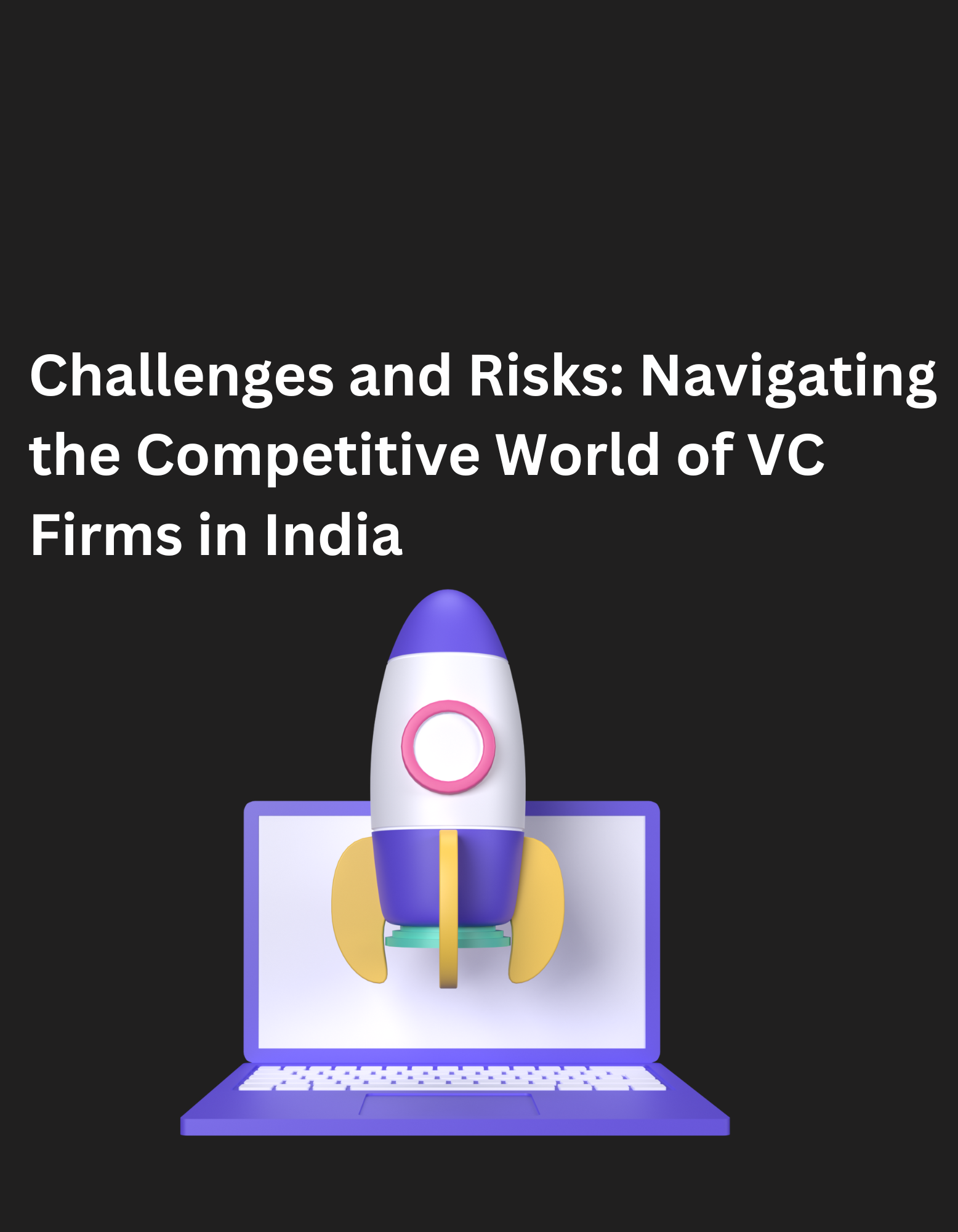In the vibrant landscape of India's startup ecosystem, Venture Capital (VC) firms play a pivotal role in fueling innovation and entrepreneurship. As the world looks to India for the next big tech breakthrough, VC firms are eager to identify promising startups to invest in. However, this dynamic environment is not without its challenges and risks. In this blog, we will explore the intricacies of VC firms in India and the hurdles they face while searching for the next big thing.
The Rise of Tech Startups in India
India has witnessed a remarkable surge in tech startups over the past decade. From fintech and e-commerce to healthtech and edtech, innovative ideas are sprouting everywhere. This surge can be attributed to a favorable regulatory environment, a growing consumer base, and a burgeoning pool of talented entrepreneurs. As a result, Venture Capital firms in India have been busier than ever, seeking promising startups to invest in and nurturing them for growth.
The Competitive Landscape of VC Firms in India
Competition is fierce among VC firms in India, all vying for a piece of the startup pie. With numerous success stories like Flipkart, Ola, and Paytm, the stakes are high, and investors are constantly on the lookout for the next unicorn. The competition is not just limited to local players; international VC firms are also eager to tap into the Indian market, adding another layer of complexity to the landscape.
Challenges Faced by VC Firms in India
Deal Flow: One of the primary challenges for VC firms is sourcing promising startups. While there is no shortage of startups in India, identifying the ones with the potential to disrupt markets and achieve significant scale is a daunting task. VC firms must sift through a vast pool of startups to find the diamonds in the rough.
Valuation: Determining the right valuation for a startup is a delicate art. Overvaluing can lead to unrealistic expectations and potential downfalls, while undervaluing might mean missing out on a lucrative opportunity. Striking the right balance is crucial.
Regulatory Hurdles: The regulatory environment in India can be complex and ever-changing. VC firms must navigate various rules and regulations, including foreign investment restrictions, to ensure compliance while making investments.
Exit Strategies: VC firms invest with the expectation of making a profitable exit. However, finding the right exit strategy, be it through IPOs or acquisitions, can be challenging, especially in a market as diverse and dynamic as India.
Competition for Talent: VC firms also compete for the best talent. Top-notch analysts and experts are in high demand, and firms must offer attractive packages and incentives to secure the right team.
Risks Associated with VC Investments in India
Market Volatility: India's market can be volatile, with economic and political factors playing a significant role. VC firms must be prepared to weather these fluctuations.
Currency Fluctuations: For international VC firms, fluctuations in the Indian rupee can impact the overall returns on investments.
Sector-Specific Risks: Different sectors come with their own sets of risks. For example, healthtech startups may face regulatory hurdles, while edtech startups could be affected by changes in the education system.
Operational Risks: Startups are inherently risky ventures. Many fail, and VC firms must be prepared for the possibility of their investments not panning out as expected.
Exit Challenges: Finding the right time and strategy to exit an investment can be challenging. Holding onto an investment for too long can lead to diminishing returns, while exiting prematurely can result in missed opportunities.
Krystal Ventures: Navigating the Challenges Successfully
In this highly competitive and risk-laden environment, some VC firms stand out for their ability to navigate the challenges successfully. One such firm is Krystal Ventures. With a proven track record of identifying and nurturing tech startups to invest in, Krystal Ventures has earned its reputation as a reliable and visionary player in the Indian VC landscape.
Krystal Ventures' success can be attributed to its strategic approach to deal flow management, rigorous due diligence processes, and a keen understanding of market trends. They excel in valuing startups accurately, ensuring that both the entrepreneurs and the firm benefit from the investment. Moreover, Krystal Ventures has demonstrated an ability to adapt to regulatory changes swiftly, ensuring compliance while staying ahead of the curve.
In conclusion, the world of VC firms in India is an exciting and dynamic one, filled with opportunities and risks. Tech startups continue to be the focal point, attracting investment from both local and international players. To succeed in this competitive environment, VC firms must be prepared to face challenges head-on and manage the associated risks diligently. As we've seen with Krystal Ventures, it's possible to navigate this landscape successfully with the right strategies and a deep understanding of the Indian startup ecosystem.





